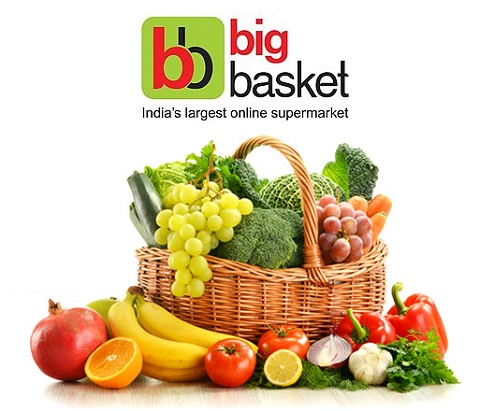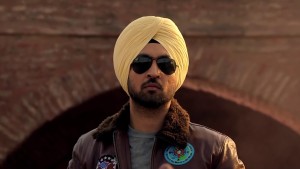Big Basket’s Product Idea…
An answer to the plight of grocery shopping for most citizens and the drudgery of being acquainted with the routine day after day, Big Basket treaded on the path of E-Tailing to put a full stop to this task of going to the store every day. With the world becoming increasingly fast paced, Big Basket focuses on bring groceries and lifestyle products to one’s doorstep. Now grocery shopping is just a click away- with the best part being that you do not have to put yourself through the endless stream of traffic on the roads.
Quick Facts:
| Name: | Big Basket |
| Founded: | 2011 |
| Founder: | V S Sudhakar, Hari Menon, Vipul Parekh, Abhinay Choudhari and V S Ramesh |
| CEO | Hari Menon |
| Industry: | E-Tailing |
| Sector: | Public |
| Country: | India |
| Website: | http://www.bigbasket.com |
Their Vision!!
With the glaring prospect of having a fair share of India’s current $294 billion grocery retailing market of the $490 billion retail market, the founders of Big Basket were certain that an E-tailing market was the right step forward. Now already the leading E-Grocery store in the market, the company is looking at spreading its tentacles to several other metropolitan cities and surrounding villages, a move fuelled by a 300-million middleclass population – one that will multiply their profits almost instantly.
Who Are Its Founders? How Did They Begin?
This E-grocery store was founded in 2011 and headquartered in Bangalore by a team of five extremely experienced entrepreneurs, namely V S Sudhakar, Hari Menon, Vipul Parekh, Abhinay Choudhari and V S Ramesh. Previously in 1999, the quintet joined heads and created what came to be known as Fabmart.com- an E-tailing store selling music, jewelry, toys and so on. Subsequently, they started a supply chain in four South-Indian states boasting of 200 stores. The chain was labeled Fabmall. The entity was then acquired by the Aditya Birla Group a few years later and renamed “More”. It was only in 2011 that the quintet would join hands yet again after persuasion from angel investors K. Ganesh and Meena Ganesh to launch Big Basket, now India’s biggest E-grocery store. Together, they have notched up collective revenues of 212-crores for the financial year of 2014-15, though they personal net worth remains undisclosed. With goal of taking Big Basket into the billionaire club by 2017, their current running revenue is stationed at $400 million, a four-fold jump since August 2015.
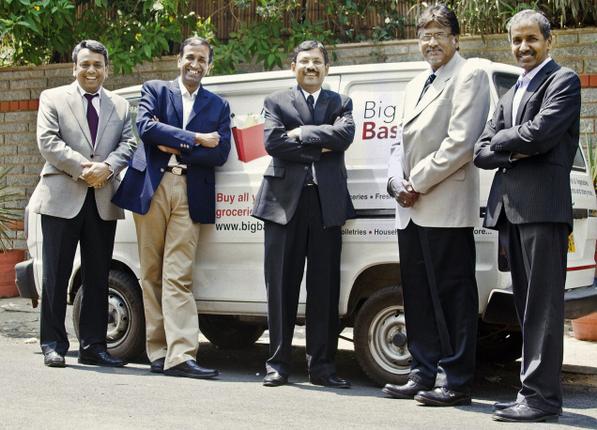
Photo Credit: http://www.thehindu.com/features/metroplus/best-startups-of-2015/article8031828.ece
The Business Model That Made Them The Frontrunners!!
“It’s not a mobile phone; each potato has a different size, “says Hari Menon. While competition in the last couple of years presumed to be stiff for Big Basket, over the last few months, their competitors- Ola Store, Flipkart, and Paytm have either tanked or fizzled out. While Grofer seems to be their only competition in this field, Amazon Now has yet to make a mark in the industry. Considering themselves experienced or rather veteran grocers, Menon feels that this edge is what separates them from the rest, as most other E-grocery stores were launched by entrepreneurs from the software world and other spheres that aren’t correlated to this field. In 5-years since its inception, Big Basket has spread to 23-cities, two more in the process, and caters to 20,000- 35,000 orders a day from each city alone. The risk? If the process is not managed seamlessly, the product perishes. For the CEO, knowing the distributors, farmers, and suppliers is imperative and conclusive with regard to their profit margins. In the field of recruitment, Menon insists that he hires professionals from rival grocers to stay ahead of the pack. Revolving around two models ‘Just in time’ (which requires the delivery boys to purchase the product just before the delivery) and the “Inventory model” (which functions out of their very own warehouse, achieved by their relationship with farmers and suppliers). The targeted profit margins are 25% on outsourced goods, but with their own label, dealing with rice, lentils and so on, they achieve a profit margin of 35%.
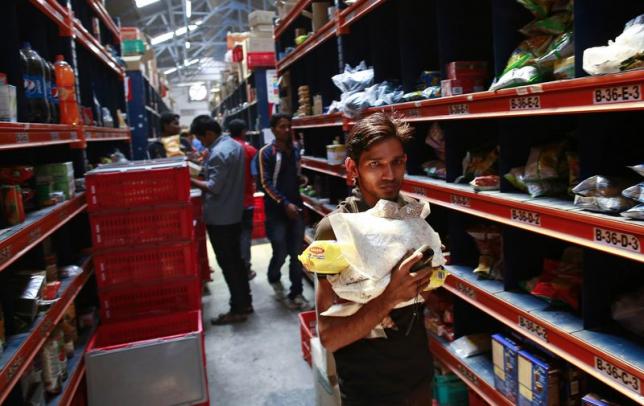
Photo Credit: http://in.reuters.com/article/india-internet-retail-idINKCN0JA27A20141126
While in the Bangalore branch itself, apparently just a few employees take in the orders for the day, while a little more than a dozen employees sift through the groceries, weigh, measure and tally, and pack the products to be delivered. However, all the manual labor is tabbed by their database which accounts the dispatch time and delivery, managing orders and the batches of food coming into the warehouse and the amount leaving it to accomplish an order, as well as service complaints. Their no question customer refund and unmatchable customer service has only thickened their bond with their customers. Despite the amount of investments pouring in, the founders are adamant on capping their expansion to just 25-cities, in order to improve the functioning of every unit until flawless before looking into expanding further.
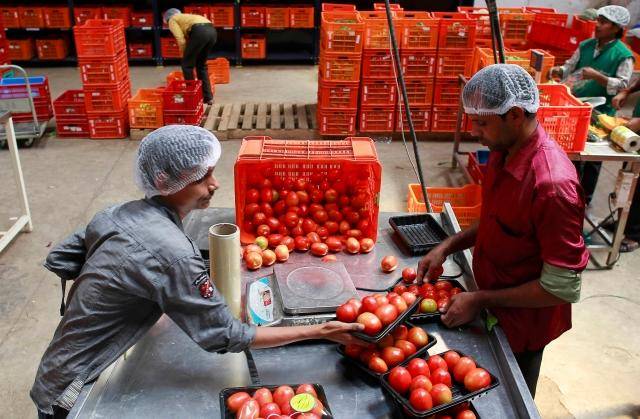
Photo Credit: http://tech.economictimes.indiatimes.com/news/internet/bigbasket-express-delivery-service/47671480
Who Invested In Big Basket?
In September 2011, TutorVista’s angel investors K. Ganesh and Meena Ganesh pushed V S Sudhakar, Hari Menon, Vipul Parekh, Abhinay Choudhari and V S Ramesh to launch Big Basket into the market with an initial funding. As soon as they were launched ChrysCapital co-founder Raj Kondur and Ascent Capital came into the party with a $10million funding. In 2014, investors Helion Ventures and Zodius Capital pumped in an additional $200 million and Bessemer Venture Partners added to that tally with a $50 million funding a few months later. In order to propel their expansion across India, in March of 2016 UAE-based Abraaj Group raised $150 million in a funding campaign.
Challenges Faced On Their Road To Success…
While kick starting their business, the challenges faced by Hari and his team were twofold: Recruiting and managing the groceries with the aim to prevent wastage- thrift. Hiring and retaining talent was always the challenge and with the employment of delivery boys, the task got even trickier. In facing this challenge and solving it, he was quoted saying, “Recruiting, training and retaining delivery boys has been little tricky for us. As the catchment dries up, we now go to smaller cities to hire them and provide them with affordable housing in the city of operations. This helps a lot in retention.” With regard to the management of their products and resources, they have facilitated the use of technology to keep a track on the perishable items and in the process managed to reduce the wastage and increase the frugality of the cycle.
Where Do They Stand In The Market Today?
In the aftermath of the fundings, which enabled them to spread their wings to 23-cities, with the set up of two more in progress, work with 1000+ brands and cater to up to 35,000 orders a day in the bigger cities, the revenue of Big Basket had increased five-fold in the last eighteen months and is on the path to tip the scale even further. Their effort in bringing aboard Bollywood superstar Shah Rukh Khan and association with FuGenX mobile app developers has only placed them as the front runners in the business. All in all, their secret behind their success is credited to their extensive decade and a half experience of being in the business and completely understanding the subtle nuances to make it work seamlessly, as compared to their competitors.
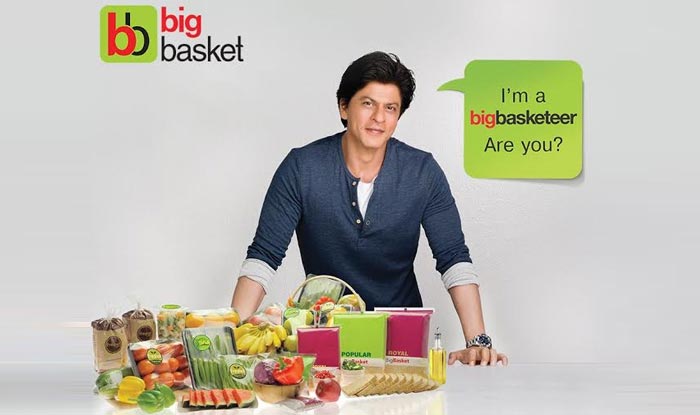
Photo Credit: https://inc42.com/buzz/will-the-marketplace-model-work-for-bigbasket/
Acquisitions:
In response to their rival Grofer’s 90-minute speed delivery, in 2015 Big Basket acquired hyperlocal two-wheeler startup Delver to bring out their 60-minute speed delivery option. The emergency delivery option offered to customers saw plenty of takers, boosting the overall revenue of the company.
Threats They Face!!
With the E-tailing industry like any other business becoming a game of monopoly, Big Basket too, as successful as there are, have their challenges and threats. With threats of the rising of rivals Grofer (Raising $165.5 million in funds in 2015), Big Bazaar launching its own E-grocery app, and Pepper Tap, Local Banya and Zopnow on their heels, maintaining customer satisfaction and retaining a seamless inventory and logistics is always make or break factor for this front running E-grocery store. Above all this, the pre-eminent or physical markets are the biggest threats to these E-tailing entities, as a good proportion of people still like to feel their fruits, veggies and take a good look at the other items before putting them in the cart- a trend or rather an embedded routine that’s not likely to change for some, period.

Photo Credit: http://www.thegoodshoppingguide.com/supermarkets/
https://www.youtube.com/watch?v=vMe4dSlHjQc


